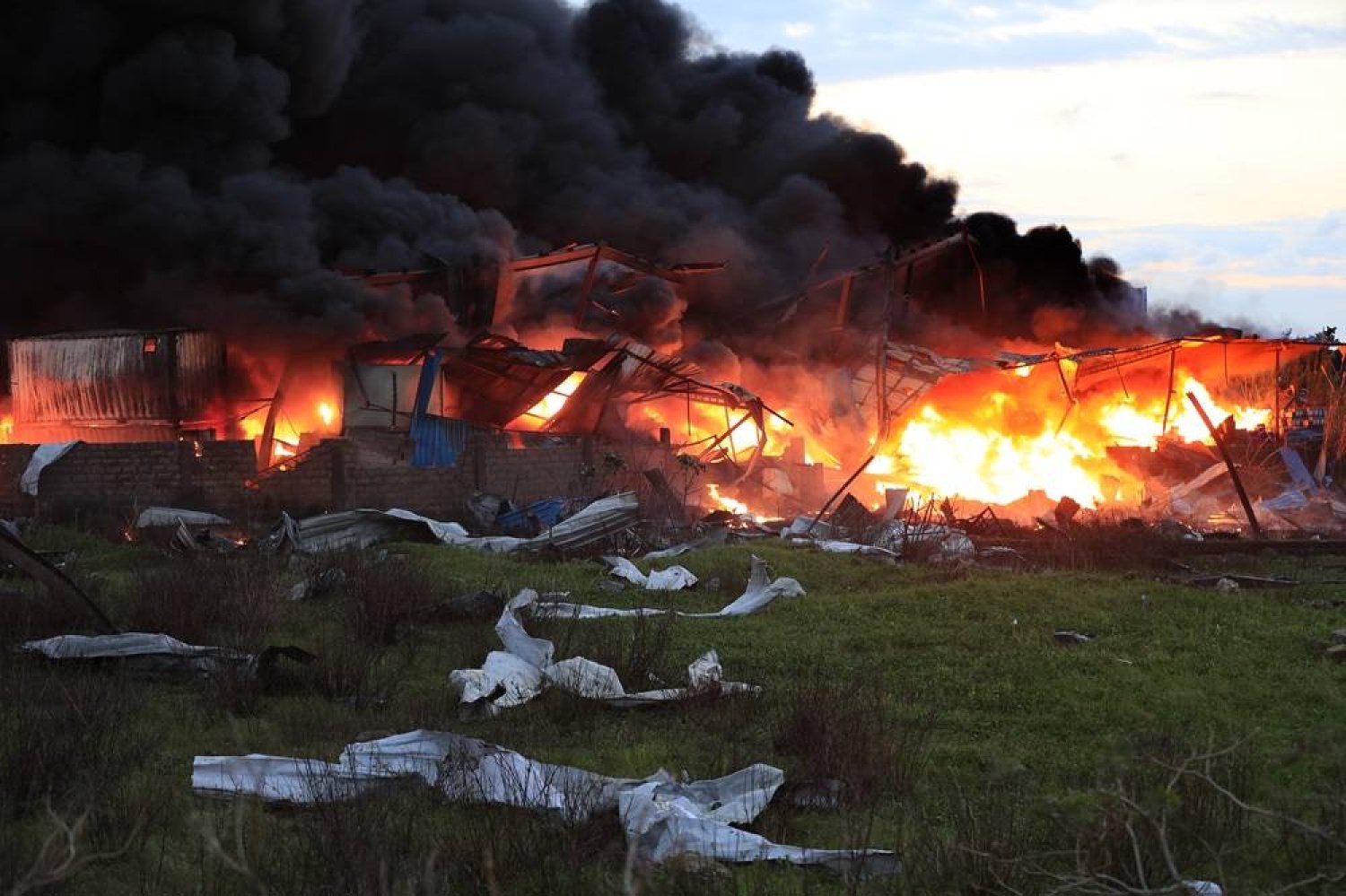On Monday evening, Israeli warplanes targeted multiple warehouses in the southern Lebanese vicinity of Ghazieh, causing injuries to at least 13 individuals. Ghazieh is located five kilometers south of the major Lebanese coastal town of Saida.
These strikes targeted the municipality’s industrial area in Ghazieh, hitting two sites that housed three warehouses, as reported by L’Orient Today. The first warehouse stored barrels of oil, the second held fuel tanks for electric generators, and the third stored scrap metal and tires.
Medical sources confirm that the injured individuals, totaling at least 13, have been transported to nearby hospitals, and none are in critical condition.
The group comprises three Lebanese, one Palestinian, and eight Syrians (including four children). Among them were the two Syrian workers previously mentioned, who were in the warehouses when targeted by the Israeli army.
Additionally, a woman residing near one of the strike sites was initially taken to a hospital in Saida to address bleeding caused by the blast. However, she has since been discharged in good condition, according to L’Orient Today.
The initial strike targeted a tire factory near a warehouse, owned by the major water company Rim, located near the Zahrani-Saida highway. The second strike focused on Ghazieh’s main road, which is also the primary coastal route from Beirut to Sour, near Chahouri mosque.
Security forces are working to evacuate civilians from the airstrike site due to concerns about the potential ignition of leaked diesel fuel. The fires resulting from the strikes have not yet been extinguished.
Earlier in the afternoon, the National News Agency in Lebanon reported an “enemy drone” at low altitude over the Saida area.
Simultaneously, the Israeli Army Radio has declared that the strike “was not an assassination operation.” The Israeli military spokesperson Daniel Hagari declared that the Israeli army targeted Hezbollah weapons depots in Ghazieh in response to a drone launched into Israel by Hezbollah earlier in the day.
According to earlier reports, an Israeli police bomb squad was on-site, investigating the area where a drone had fallen near the occupied village of Arbel, in close proximity to Lake Tiberias, also known as the Sea of Galilee. Following this, the army stated that the drone “most likely did not belong” to the Israeli military, and the “circumstances of the incident are under investigation.”
The origin of the drone remains unconfirmed, and Hezbollah has not claimed responsibility for the incident.
Avichay Adraee, the Arabic-speaking spokesperson for the Israeli army, underscored on his official X account that “We will continue to respond forcefully to Hezbollah’s aggression.”
Growing fears of a full-blown war
Hezbollah and Israel have been exchanging near-daily fire across the border since the war on Gaza broke out on October 7. While most of the exchanges in recent months have been limited to areas near the frontier, Ghaziyeh is approximately 30 kilometers (around 20 miles) from the border and less than five kilometers from the city of Saida.
Last week, the Israeli military reported that it conducted a strike in the southern Lebanese city of Nabatiyeh, claiming the lives of a Hezbollah commander, his deputy, and another fighter.
The strike on a residential building also resulted in the death of seven members of the same family, as reported by a security source.
Additionally, another strike in a different location led to the loss of a woman, her child, and stepchild, according to the Agence France-Presse (AFP).
In response, Hezbollah chief Hassan Nasrallah on Friday vowed retaliation, stating that Israel would pay “with blood” for the civilian casualties in Lebanon. Nasrallah issued a warning, highlighting the group’s possession of precision-guided missiles capable of reaching places like Eilat on occupied Palestine’s Red Sea coast, extending beyond its usual northern targets.
The recent escalation in violence has sparked international concern, with growing fears of a potential full-blown war between Israel and Hezbollah reminiscent of the 2006 conflict.
Since October, cross-border incidents have resulted in at least 269 deaths on the Lebanese side, primarily Hezbollah fighters, along with 40 civilians, according to an AFP tally.


